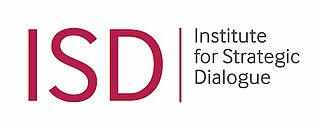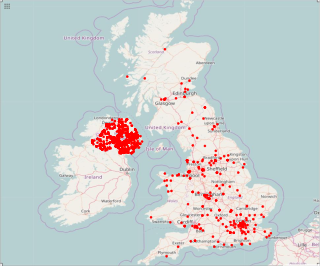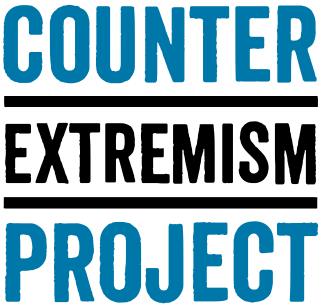
Terrorism, in its broadest sense, is the use of violence against non-combatants to achieve political or ideological aims. The term is used in this regard primarily to refer to intentional violence during peacetime or in the context of war against non-combatants. There are various different definitions of terrorism, with no universal agreement about it. Different definitions of terrorism emphasize its randomness, its aim to instill fear, and its broader impact beyond its immediate victims.

Counterterrorism, also known as anti-terrorism, relates to the practices, military tactics, techniques, and strategies that governments, law enforcement, businesses, and intelligence agencies use to combat or eliminate terrorism.
Gary LaFree is a Professor and Chair of the Criminology and Criminal Justice department at the University of Maryland, College Park, the Director of the Maryland Crime Research and Innovation Center (MCRIC) and the Founding Director of the National Consortium for the Study of Terrorism and Responses to Terrorism (START). His main areas of expertise are sociology, criminology, race and crime, cross-national comparative research and political violence and terrorism.
Terrorism and mass attacks in Canada includes acts of terrorism, as well as mass shootings, vehicle-ramming attacks, mass stabbings, and other such acts committed in Canada that people may associate with terroristic tactics but have not been classified as terrorism by the Canadian legal system.

The Bureau of Counterterrorism and Countering Violent Extremism (CT) is a bureau of the United States Department of State. It coordinates all U.S. Government efforts to improve counterterrorism cooperation with foreign governments and participates in the development, coordination, and implementation of American counterterrorism policy.
The Australian Intelligence Community (AIC) and the National Intelligence Community (NIC) or National Security Community of the Australian Government are the collectives of statutory intelligence agencies, policy departments, and other government agencies concerned with protecting and advancing the national security and national interests of the Commonwealth of Australia. The intelligence and security agencies of the Australian Government have evolved since the Second World War and the Cold War and saw transformation and expansion during the Global War on Terrorism with military deployments in Afghanistan, Iraq and against ISIS in Syria. Key international and national security issues for the Australian Intelligence Community include terrorism and violent extremism, cybersecurity, transnational crime, the rise of China, and Pacific regional security.

The Institute for Strategic Dialogue (ISD) is a political advocacy organization founded in 2006 by Sasha Havlicek and George Weidenfeld and headquartered in London, United Kingdom.
The United Nations Interregional Crime and Justice Research Institute (UNICRI) is one of the five United Nations Research and Training Institutes. The institute was founded in 1968 to assist the international community in formulating and implementing improved policies in the field of crime prevention and criminal justice. Its work currently focuses on Goal 16 of the 2030 Agenda for Sustainable Development, that is centred on promoting peaceful, just and inclusive societies, free from crime and violence.

Terrorism in the United Kingdom, according to the Home Office, poses a significant threat to the state. There have been various causes of terrorism in the UK. Before the 2000s, most attacks were linked to the Northern Ireland conflict. In the late 20th century there were also attacks by Islamic terrorist groups. Since 1970, there have been at least 3,395 terrorist-related deaths in the UK, the highest in western Europe. The vast majority of the deaths were linked to the Northern Ireland conflict and happened in Northern Ireland. In mainland Great Britain, there were 430 terrorist-related deaths between 1971 and 2001. Of these, 125 deaths were linked to the Northern Ireland conflict, and 305 deaths were linked to other causes, including 270 in the Lockerbie bombing. Since 2001, there have been almost 100 terrorist-related deaths in Great Britain.
Erroll G. Southers is an American expert in transportation security and counterterrorism. He is the author of Homegrown Violent Extremism (2013). Southers is a Professor of the Practice in National & Homeland Security, the Director of Homegrown Violent Extremism Studies and the Director of the Safe Communities Institute at the University of Southern California (USC) Sol Price School of Public Policy. He is also the research area leader for Countering Violent Extremism at the DHS National Center for Risk and Economic Analysis of Terrorism Events (CREATE) and managing director, counter-terrorism & infrastructure protection at TAL Global Corporation. He was assistant chief of the Los Angeles World Airports (LAWA) police department's office of homeland security and intelligence. He is a former special agent of the Federal Bureau of Investigation and was deputy director of homeland security under California governor Arnold Schwarzenegger. In 2009 he was nominated by President Barack Obama to become head of the Transportation Security Administration (TSA), but Southers withdrew.
Richard Martin Donne Barrett CMG OBE is a former British diplomat and intelligence officer now involved in countering violent extremism. Barrett is a recognised global expert on terrorism who frequently appears as a panellist in related conferences and whose commentary is regularly featured in the press.
The Global Counterterrorism Forum is an informal, apolitical, multilateral counter-terrorism platform that was launched officially in New York on 22 September 2011.
Islamic extremism in the United States comprises all forms of Islamic extremism occurring within the United States. Islamic extremism is an adherence to fundamentalist interpretations of Islam, potentially including the promotion of violence to achieve political goals. In the aftermath of the September 11, 2001 terror attacks, Islamic extremism became a prioritized national security concern of the U.S. government and a focus of many subsidiary security and law enforcement entities. Initially, the focus of concern was on foreign Islamic terrorist organizations, particularly al-Qaeda, but in the course of the years since the September 11 terror attacks, the focus has shifted more towards Islamic extremist radicalized individuals and jihadist networks within the United States.

Violent extremism is a form of extremism that condones and enacts violence with ideological or deliberate intent, such as religious or political violence. Violent extremist views often conflate with religious and political violence, and can manifest in connection with a range of issues, including politics, religion, and gender relations.
The International Centre for Counter-Terrorism (ICCT) is an independent think-and-do tank providing multidisciplinary policy advice and practical support focused on prevention, the rule of law and current and emerging threats three important parts of effective counter-terrorism work.

Rachel Briggs OBE was Founding Executive Director of Hostage US, the first Director of Hostage UK and was awarded an OBE in the 2014 Honours List for services to hostages and the families of victims kidnapped overseas. She is the Chair of the Board of Directors of the Global Center on Cooperative Security, an expert on foreign and security policy and an Associate Fellow of Chatham House.

The Counter Extremism Project (CEP) is a non-profit non-governmental organization that combats extremist groups "by pressuring financial support networks, countering the narrative of extremists and their online recruitment, and advocating for strong laws, policies and regulations".

Anne Azza Aly is an Australian politician who has been a Labor member of the House of Representatives since the 2016 election, representing the electorate of Cowan in Western Australia. Aly is currently the Minister for Early Childhood Education and Minister for Youth in the Albanese ministry.
The UN Counter-Terrorism Implementation Task Force (CTITF) was an instrument designed to roll out the UN Global Counter-Terrorism Strategy.
The Department of Home Affairs is the Australian Government interior ministry with responsibilities for national security, law enforcement, emergency management, border control, immigration, refugees, citizenship, transport security and multicultural affairs. The portfolio also includes federal agencies such as the Australian Border Force and the Australian Security Intelligence Organisation. The Home Affairs portfolio reports to the Minister for Home Affairs, currently held by Clare O'Neil, and was led by the Secretary of the Department of Home Affairs, Mike Pezzullo, until his sacking in November 2023 for breaching the code of conduct. In 2022, the Australian Federal Police, Australian Criminal Intelligence Commission and Australian Transaction and Analysis Center were de-merged from the department and moved to the Attorney General portfolio.









